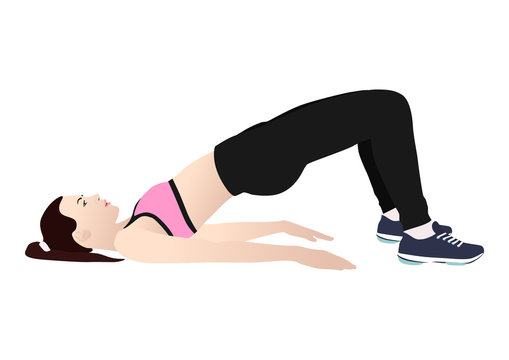
Kegel Exercise Guide | What is Kegel exercise and how to do it?
Share
Kegel exercise is also called pelvic floor muscle contraction exercise, or “levator anus exercise” for short. It is training to strengthen the pelvic floor muscles around the urethra and vagina. By contracting the muscle power of the anus, vagina, and urethra to strengthen the pelvic floor muscles can increase the contraction force of the vagina and improve the quality of sexual life.
What are Kegel exercises?
Kegel exercises are simple clench-and-release exercises that you can do to strengthen your pelvic floor muscles. Your pelvis is the area between your hips that holds your reproductive organs.
The pelvic floor is a series of muscles and tissues that form a sling or hammock at the bottom of your pelvis. This sling holds your organs in place. A weak pelvic floor may lead to issues such as the inability to control your bowels or bladder.

Once you understand Kegel exercises, you can do them anytime and anywhere — in the privacy of your own home or while waiting in line at the bank.
Why do Kegel exercises?
Both women and men can benefit from Kegel exercises.
Many factors can weaken the pelvic floor in women, such as pregnancy, childbirth, aging, and weight gain.
The pelvic floor muscles support the womb, the bladder, and the bowels. If the muscles are weak, these pelvic organs may lower into a woman’s vagina. Besides being extremely uncomfortable, this can also cause urinary incontinence.
Men may also experience weakening in the muscles of their pelvic floor as they age. This can lead to incontinence of both urine and feces, especially if the man has had prostate surgery.
How to do Kegel exercises?
To correctly feel the contraction of the body caused by exercise, there are five methods in the first step of practicing Kegel exercises, and you can choose one of them:
- When going to the toilet, people most commonly control peeing during peeing (stopping the urine flow immediately after the flood is discharged). If you succeed, that means you are using the right muscles. This skill can be called intermittent urination.
- After lying flat with your feet shoulder-width apart, your knees should be bent and your hips raised. Take care to relax your body and avoid excessive force. Slowly retract your lower abdomen. Do not hold your breath during the process. You will feel it when the pelvic muscles contract and expand. The muscles around the anus will shrink inward and lift.
- After the woman lay down, put a finger into the vagina, try to compress the finger with the muscle of the vagina, and feel whether the finger is clamped and whether the vaginal wall is contracted. If you don’t feel the muscles, it is recommended to put two fingers in here to try it. Furthermore, using an auxiliary tool, such as Kegel Ball, is recommended for this exercise. If you want to advance to the smart ball, take good care of these brands of shrinking balls, which are as firm as your eighteen-year-old.
- Imagine yourself in an elevator crowded with people. You want to exhaust, but you have to hold back. Try to contract the anal muscles to avoid exhaust. If the anus feels like being pulled, it means using the right muscles. Let this contraction last for a few seconds until the strength decreases, and then relax.
- Place the tip of one finger on the anus and try to squeeze the finger with the muscles of the anus. If you feel the pressure, you will use the right muscles.
The following organizes the Kegel movement into three stages for your reference:
The first stage of the Kegel movement-step by step
Suddenly “brake the brake” or hold back during urination to feel the contraction of the pelvic muscles.
The second stage of the Kegel exercise-step by step and perseverance
- Contract the muscles of the buttocks and raise the anus upwards.
- Close the urethra, vagina and anal opening tightly.
- Keep the pelvic floor muscles contracted for 5-10 seconds, then slowly relax for 5-10 seconds, and repeat the contraction for more than 20 consecutive times.
- You should breathe as usual throughout the exercise to keep other parts of your body relaxed. You can touch the abdomen with your hands. If the abdomen is tightened, the exercise method is wrong.
- Kegel exercises should be practiced for at least 15 minutes, 10-20 times a day, and the therapeutic effect can be seen for 8-12 weeks.
The third stage of the Kegel exercise-do whatever you want, and you will be familiar
With the daily activities carried out every day, the intensity can gradually increase. You can practice at work, do housework, watch TV, wait for the bus, walk, etc.
Before sneezing, coughing, laughing, or lifting heavy objects, lift the anus and contract the pelvic floor muscles to prevent urine from leaking out of the urethra.
Kegel exercise skills:
- You can do it whether you are sitting, standing, or lying down; simultaneously, you can do pelvic muscle contraction exercises anytime and anywhere during work, housework, and other activities.
- Contract and clamp the muscles around the anus, vulva, and urethra. Each time you contract, you should continue to exert force from 1 to 5 (slowly extend from 5 seconds to 10 seconds) and then relax.
- It can also interrupt the flow of urine when urinating to experience the sensation of contraction of the pelvic floor muscles. When the pelvic floor muscles are contracted correctly, the yin and anus will feel upward.
- Repeat several times until you are familiar with this action and feel that you can contract these muscles as you like. But be sure not to strain the muscles of your abdomen, thighs, or buttocks.
- Fifteen times each time, at least 3-5 times a day. It is recommended that you practice regularly whether you are sitting at your desk, driving, reading, cooking, or watching TV.
- Kegel exercises cannot see the effect immediately. Achieving the desired effect may take 2-3 months to appear, and perseverance is required.
Kegel exercise method (perineal contraction exercise):
- Stop urinary flow exercise When urinating halfway, deliberately interrupt urination for about 2-3 seconds, relax, repeat several times, and pay attention to practice when the urine flow is very smooth. The pelvic floor muscles can contract strongly. Every time you go to the toilet, practice it from time to time until the flow of urine is interrupted. This is the sensation of pelvic floor muscle contraction.
- Muscle endurance exercises of the pelvic floor muscles. In the lying position, slowly tighten the pelvic floor muscles around the anus, vulva, and urethral opening, first maintain a contraction for 10 seconds, and then slowly increase to a contraction of 20- 30 seconds, rest for 5-7 seconds after finishing once, do it again, do it 10-20 times in a row, repeat three times a day, the goal is to do it 60 times a day at most. This exercise requires effort and gradual progress to avoid the side effects of muscle fatigue. In addition, you need to maintain normal breathing during exercise, do not hold your breath or strain your stomach.
- In the lying position, pelvic floor muscle strength exercises quickly contract the pelvic floor muscles for 5-6 seconds, repeat 10 times. When doing the above actions, please pay attention to pressing the stomach. The muscles must be soft and not hard and maintain normal breathing during exercise.
- Pelvic floor muscle contraction habits in life, whether you are sitting, standing, lying down, or even in daily life such as working or doing housework, you can do pelvic floor muscle contraction anytime and anywhere, lasting about 2 months. Visible results, preferably lasting for 3-6 months, the effect is better. In addition, if you stop exercising for some time, the pelvic floor muscles may gradually relax, and the effect will disappear, resulting in recurrence of urinary incontinence.
-
Cooperate with drug treatment and return visits. If necessary, the doctor will prescribe drugs and pelvic floor muscle contraction exercises to increase the clinical efficacy. Please remember to return to the clinic for evaluation on time.

※ It is recommended to use an auxiliary tool such as Kegel ball.
The process of the Kegel movement is as follows
Understand the position of the pelvic floor muscles;
The pelvic floor muscle contraction/relaxation time is five seconds each;
There will be three times in the morning, noon, and evening, 15 to 20 times in each session;
It must be persistent for at least two months.
The benefits of Kegel exercises (absolutely helpful for you)
What benefits can Kegel exercise bring to you?
Can strengthen the muscles of the pelvic floor;
Strengthen the elasticity of the urethral sphincter to improve urinary incontinence;
Effectively improve the symptoms of frequent urination, urgency, acute leakage of urine, and nocturia;
Promoting the contraction of the yin helps to make the sex life more satisfying;
It has the function of lifting the hips and shaping the abdomen to beautify the curve.
Kegel exercise schedule (I wish you success)
Like planning a fitness policy, kegel exercise recommendations can be carried out every day because the muscles used in Kegel exercises are a type of core muscle group, which is not easy to use in normal times. The following will be conducted daily for three weeks. And there is a fixed number of times in each round, so that not only can you solve the problems of premature ejaculation or loose vagina, you are not afraid that you will have urinary incontinence!
The first week: 3 rounds of retracting and rewinding exercises every day, 20 times per round in each round, 60 times in total.
The second week: 6 rounds of retracting and unwinding exercises every day, 30 times for each round, 180 times in total.
The third week: 6 rounds of retracting and unwinding exercises every day. Each round has 50 movements 300 times, and the number of practices gradually increases after four weeks.
Related post
The Ultimate Guide To Kegel Balls: How To Use Kegel Balls